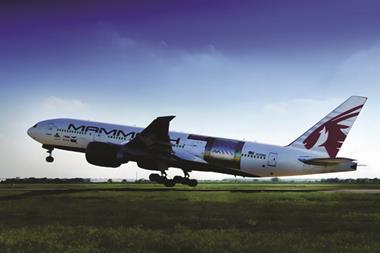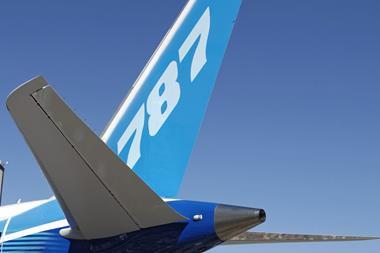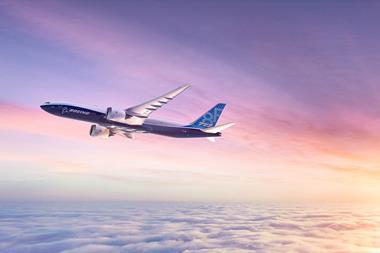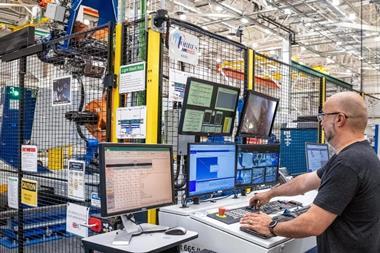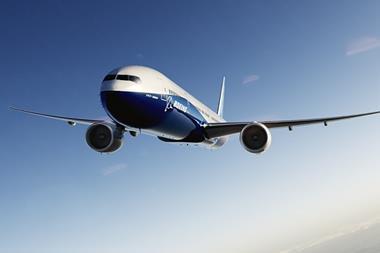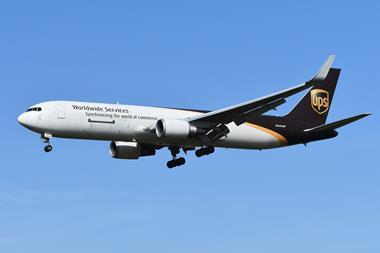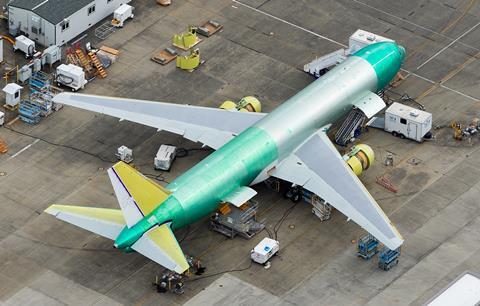
Boeing will delay the entry to market of the 777-8 freighter until 2028 and conclude production of the 767 freighter in 2027 following industrial action that has disrupted its aircraft manufacturing work.
The US airframer has faced weeks of industrial action over pay from 33,000 workers belonging to the International Association of Machinists and Aerospace Workers trade union (IAM). The disruption has resulted in significant delays to production and schedules.
Announcing its preliminary third-quarter results, Boeing said: "The company now anticipates the first delivery of the 777-9 in 2026 and the 777-8 freighter in 2028, resulting in a pre-tax earnings charge of $2.6bn.
"This schedule and resulting financial impact are based on an updated assessment of the certification timelines to address the delays in flight testing of the 777-9, as well as anticipated delays associated with the IAM work stoppage.
"Commercial Airplanes also plans to conclude production of the 767 freighter and recognize a $0.4bn pre-tax charge on the program, which also reflects impacts from the IAM work stoppage."
As well as changes to its production schedules, Boeing also plans to reduce its workforce by 10%, affecting approximately 17,000 jobs.
In a statement to employees on October 11, Boeing president and chief executive Kelly Ortberg said Boeing is in "a difficult position".
She stated: "Over the coming months, we are planning to reduce the size of our total workforce by roughly 10%. These reductions will include executives, managers and employees."
The 777-8F was originally anticipated to come to market in 2027 and the decision to push back the first delivery will put the airframer further behind Airbus, which itself shifted the entry into service date for the A350 freighter from the end of 2025 into 2026.
This delay will mean that Qatar Airways, the launch customer for the 777-8F, will have to wait over six years for the first aircraft, as the firm order for 34 jets and options for 16 more was announced in January 2022.
Boeing had a total of 10 orders for 767-300Fs in 2022, from UPS and FedEx, but Boeing's order data shows no further orders in 2023 and 2024. Deliveries of the aircraft model were paused last year due to quality issues affecting commercial and military versions of the widebody jets.
Ortberg's statement noted: "We plan to build and deliver the remaining 767 freighters ordered by our customers and then conclude production of the commercial programme in 2027."
The decision comes despite the US Senate giving Boeing permission to continue production of the aircraft despite stricter rules around engines.
The US is due to implement new aircraft efficiency rules from January 1 2028 which had called into question the future of the 767 freighter.
However, included in a Federal Aviation Administration (FAA) funding bill approved by the US Senate on May 10 is an exemption for freighter aircraft from the rules lasting until January 1 2033.
The bill, which was passed by a vote of 88-4 on May 9, will now make its way to the House of Representatives.
Sister title FlightGlobal reports that Boeing had been considering developing a new freighter to replace the 767 as a result of the stricter emissions rules.
This potentially included a freighter version of its 787 aircraft.
Deliveries of the 777F have also been slow to get going this year. Boeing has declined to comment on the reasons for the slowdown in production of the model but reports have surfaced about possible shortages of the twinjet’s GE Aerospace GE90 turbofans.
However, 11 777F have been handed over to customers from January up until the end of September.
https://www.aircargonews.net/1046850.article
https://www.aircargonews.net/1070579.article
https://www.aircargonews.net/airlines/boeing-clocks-up-11-777f-orders-in-september/










